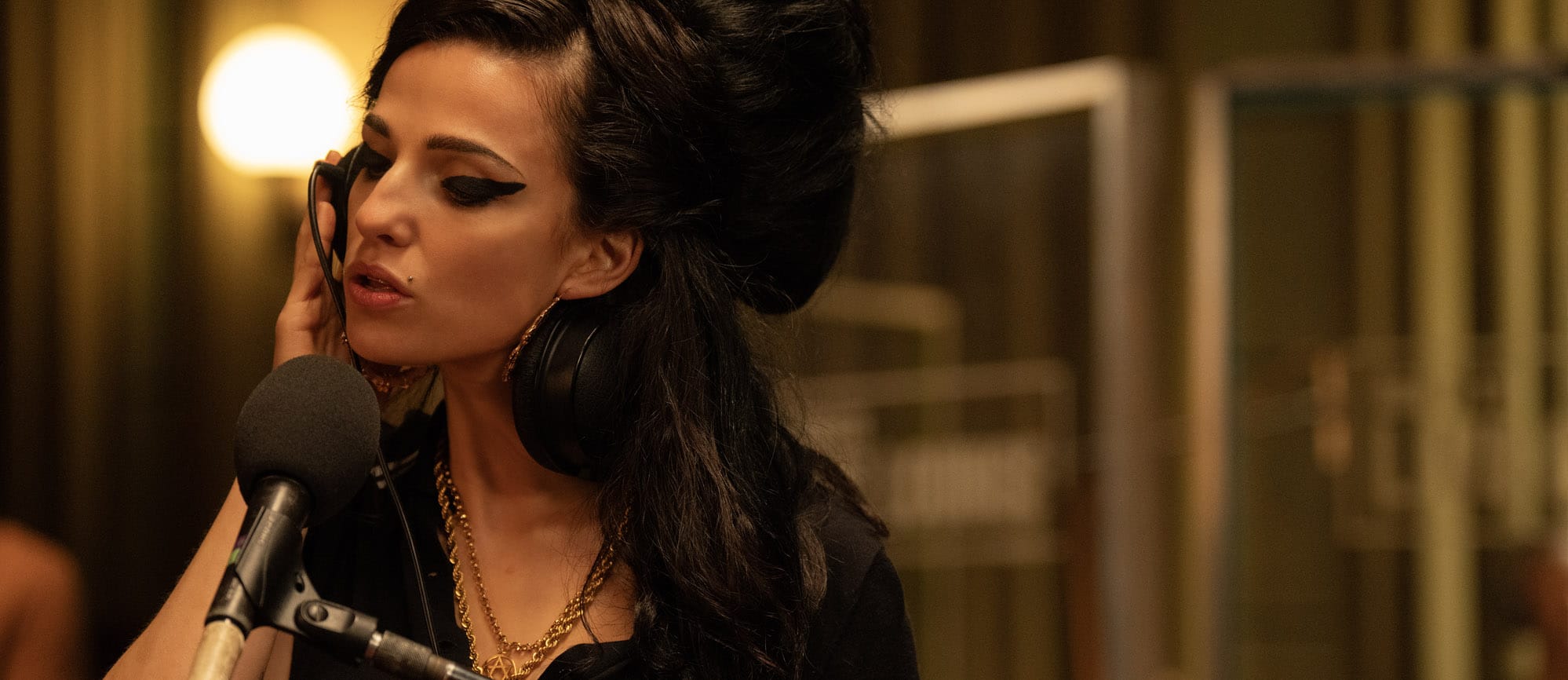"We worked on listening to Amy, analysing her, but at the same time it was really important that Marisa wasn't just an Amy Winehouse impersonator."
Giles Martin
Directed by Sam Taylor-Johnson (Nowhere Boy), Back To Black celebrates one of the most iconic voices of the 21st century, Amy Winehouse. A tribute to an extraordinary artist, nailing the film's musical direction was always going to be an extraordinary challenge, a task awarded with care to music producer Giles Martin (Rocket Man, The Beatles: Get Back) and music supervisor Iain Cooke (The Gentlemen, Wham!).
Ahead of the release of one of the most anticipated movies of 2024, we explore what attracted both men to this particular project and how honesty in their approach was key to creating an authentic portrayal that spoke not only to the music, but to the raw talent and the unique personality that Amy was.
Back To Black is in cinemas now.
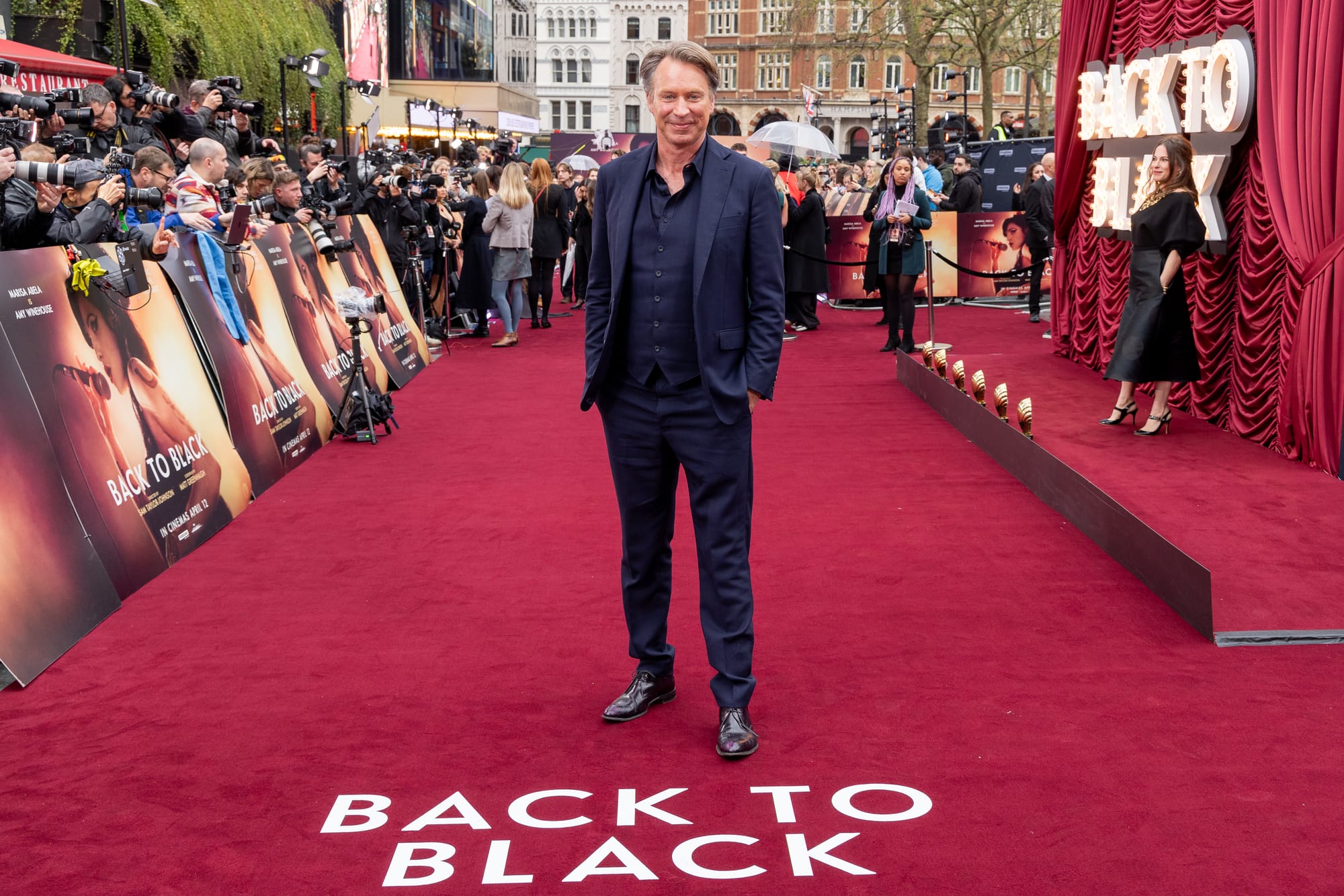
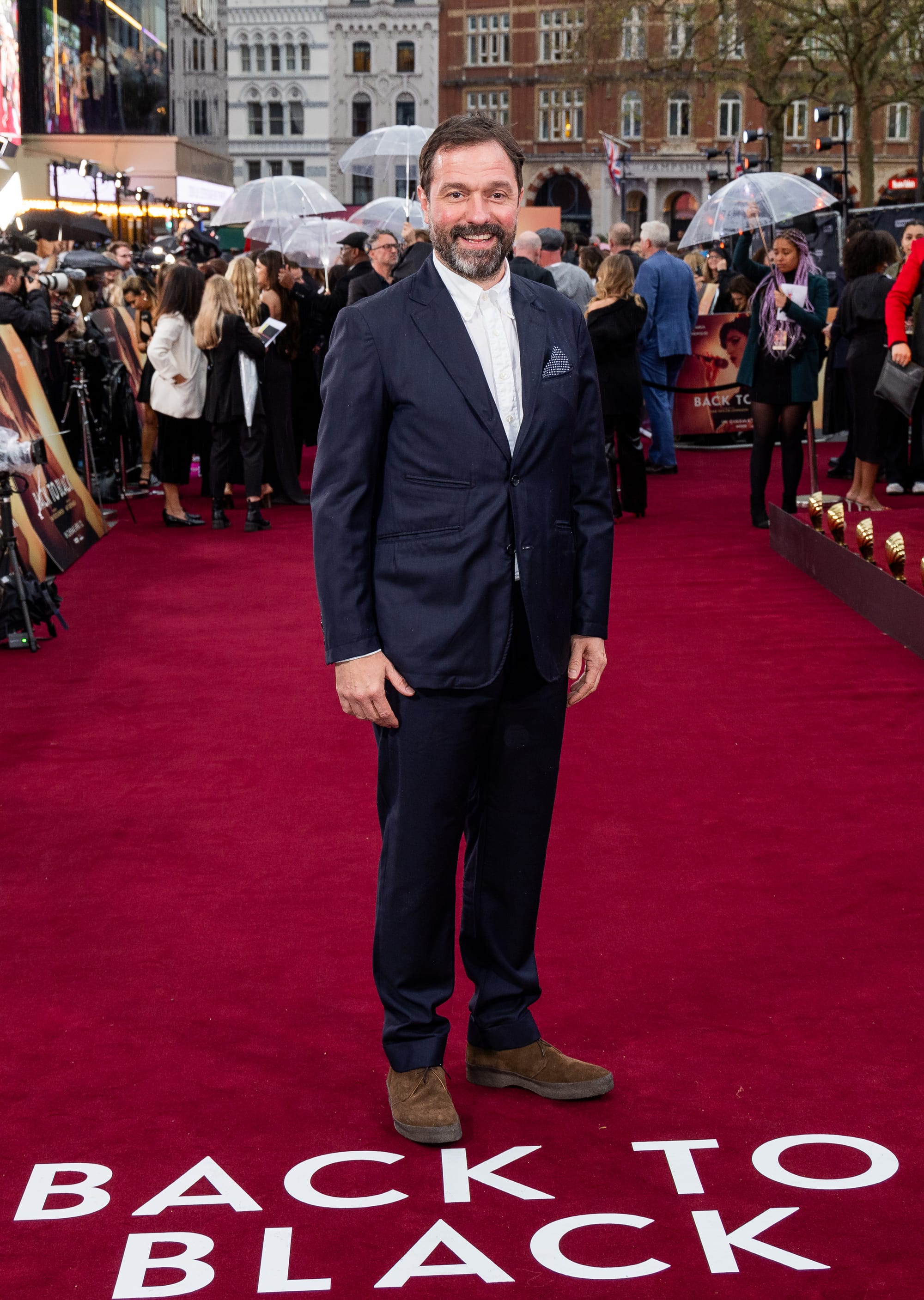
What were your immediate thoughts when you were asked to work on Back To Black?
Giles: I knew it would be a challenge because there's no more iconic voice than Amy Winehouse. I knew my responsibility was to work with Marisa Abela and work on the songs and the music. I'd worked on the Rocket Man film and Elton actually recommended me to Sam.
Back To Black in a way was a bigger challenge because everything is very real. Rocket Man was a fantasy and so you're really just replicating performances. But I trusted Sam, I trust the script, I trust the process and met Marisa and liked her and thought she was great.
Iain: Excited - to be able to help bring the filmmakers' vision to the screen and by the prospect of a film about such a complex character with her amazing music at the focus.
My role as music supervisor on this film spanned the whole journey, from initially negotiating the rights to the Amy Winehouse catalogue in order to get the film greenlit; helping put the support team (vocal coach, guitar tutor etc) around Marisa during prep; attending pre-records; rehearsals with the on-camera musicians; being on-set for the live on-camera performances during the shoot; and continuing throughout the edit process, coming up with song ideas for the needle-drops to complete the soundtrack.
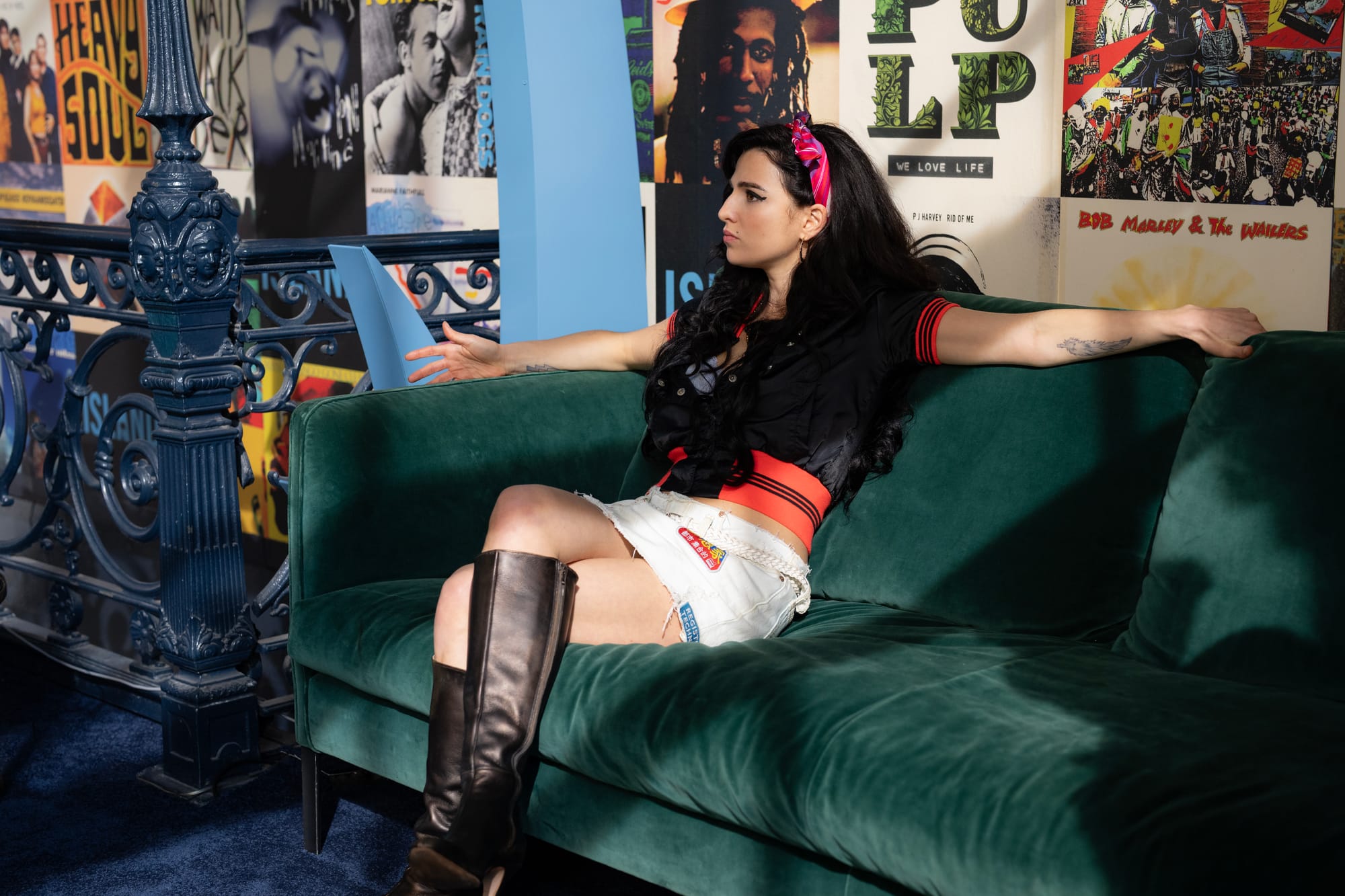
How do you ensure that an artist as beloved as Amy is represented authentically in the musical production?
Giles: Well, you just have to be true to your instincts and you have to be... honestly, honesty is the key. I think that the great thing with the film is you do have time to sort of go back and look at whether you've made mistakes or not. We decided to use Amy's original band which is important because they knew her. Having that is a really good place to start when you're doing something like this, then coupled with an actress like Marisa, we're then making sure that we get the emotion across.
Iain: One of the first things that I did when coming onboard to the film was to do a lot of research into Amy's live performances, particularly the performances that were written in the script. My team and I put together a performance bible that covered all aspects of these performances from the instruments and equipment used, the musicians line up and the staging, and specifics such as what was she and the band were wearing and what was she drinking, any observations that might be useful to the creative team. We also brought in Amy's original live band prior to filming and they recorded all the backing tracks for the live performances in the film. It felt really important to us all to honour this authentically and to aim for integrity with her performances at every point.
Can you describe to us the dynamic between yourselves and director Sam Taylor-Johnson while making the film and how your collective vision for the sound was realised?
Giles: Yeah, it's sort of based on trust in a way. I mean you know Sam is a great director and a great collaborator. She had visions of what she wanted to do at certain points and the feel she wanted to get and so that's what we talked about. It was then my job to achieve that sonically in a performance.
Iain: It was honestly one of the most collaborative experiences of my career. Sam was very open to ideas and input throughout the process, during prep throughout the shoot and the edit and it was a dream project. She really empowered us and had a lot of trust in our sensibilities and fostered a collaborative environment.
"We wanted the film to be a love letter to Amy's incredible music and shine a light on her influences within the soundtrack of the film."
Iain Cooke
How much did Amy’s own musical inspirations and influences inform the musical direction of the film?
Iain: Entirely. We wanted the film to be a love letter to Amy's incredible music and shine a light on her influences within the soundtrack of the film. Every song was carefully curated and we included artists such as Tony Bennett who we know was incredibly important to Amy and her family and who sadly passed away last year. We also managed to include songs from some of her favourite artists of all time - Sarah Vaughan, Dinah Washington, Lauryn Hill, Billie Holliday, Donny Hathaway and more, helping illustrate the influence that these outstanding artists from history had upon Amy and her career.
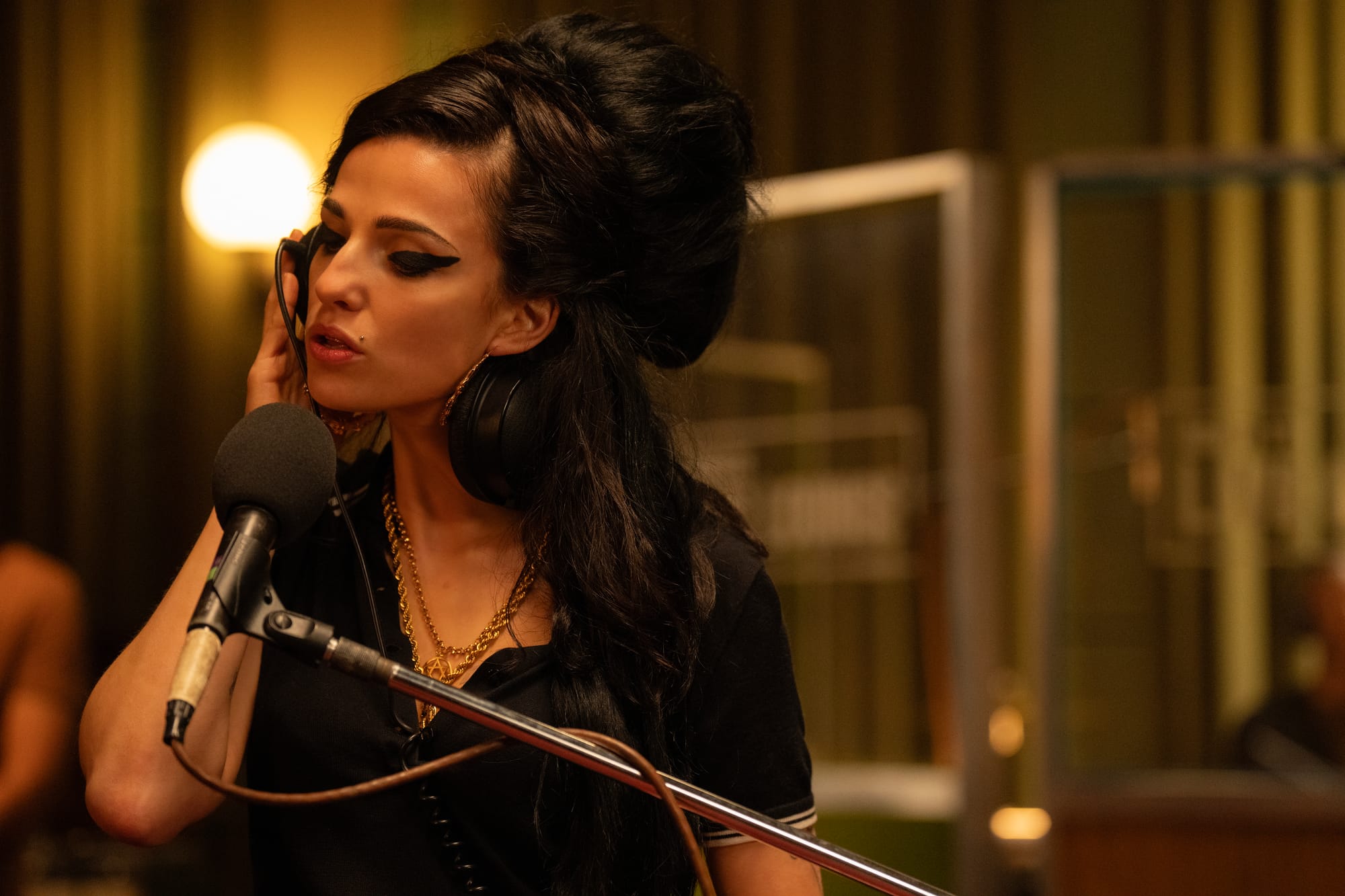
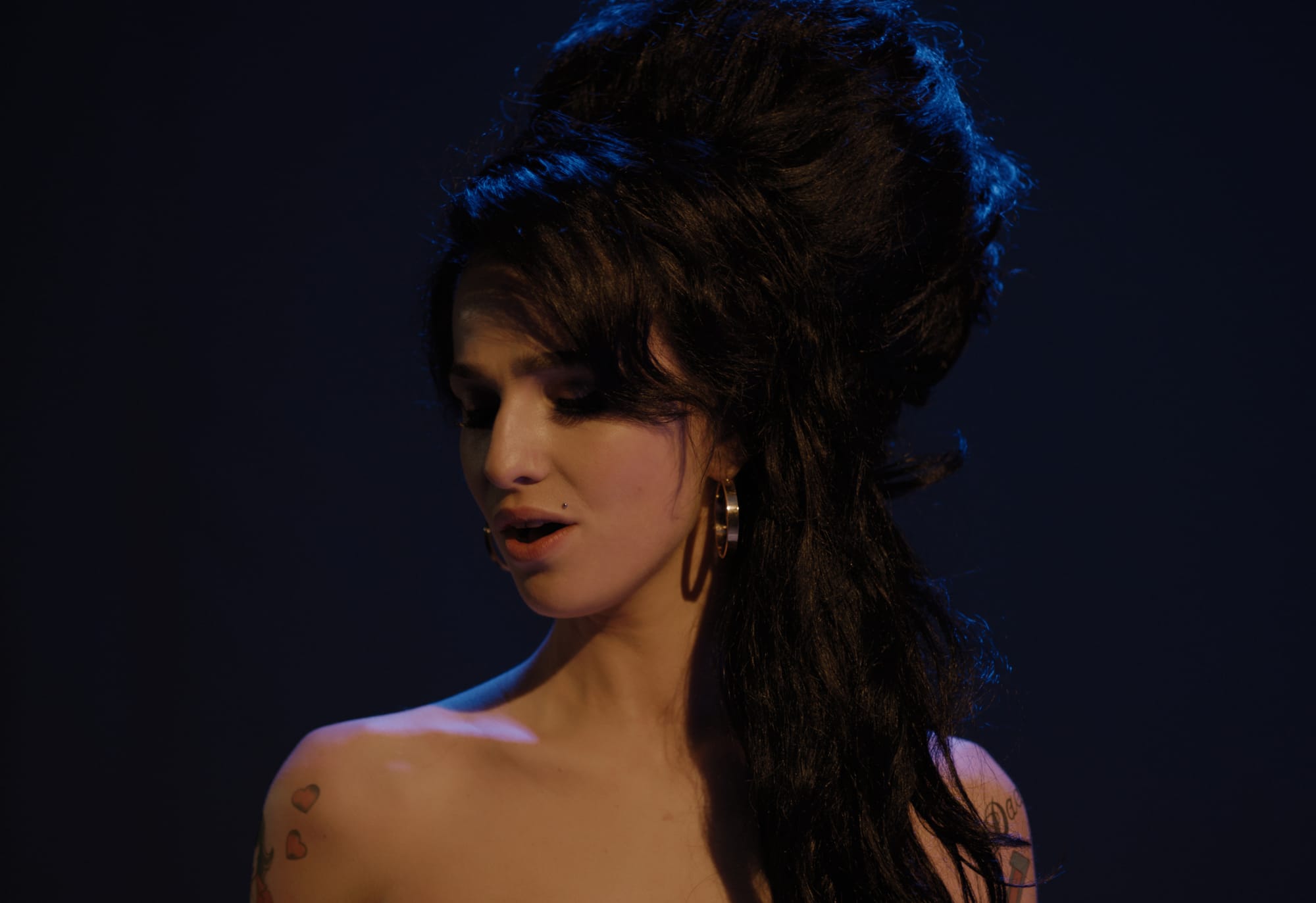
Marisa Abela, who plays Amy, sings on recreations of Amy's standards. Can you describe your working process and how you helped to bring Amy’s unique qualities through in the renditions we hear in the film?
Giles: Yeah, you start from the ground up really. I mean the great thing about Marisa is she could sing and also the great thing about Marisa is she's got really good phrasing and timing and that's really the key. Phrasing is the most important thing, how people deliver and that's what myself and Marisa worked on a lot. We worked on listening to Amy, analysing her, but at the same time it was really important that Marisa wasn't just an Amy Winehouse impersonator. She had to carry the thread of her acting through the songs and this is the great thing about working with an actress who can sing - the same way I worked with Taron Egerton for Rocket Man - that you can have a seamless transition from someone talking to singing, it's not a cut and paste job. So yeah, it takes a constant amount of work and I guess my job is to make someone feel that they can jump out of a plane without a parachute and there'll be a safety net they can land on. She wasn't used to taking risks, but then she did that and she was an amazing person to work with.
Talking of Rocket Man, you’ve worked on numerous notable projects over the years, including the acclaimed Beatles documentary series Get Back. With these credentials to your name, do you still experience a lot of pressure when approaching an esteemed artist’s catalogue of work?
Giles: Yeah there's always pressure but you know here's the thing (and I learnt this from a really early date working on Beatles material last year), I did Beatles Beach Boys and The Rolling Stones - there is pressure but at the end of the day, you're just in a room with an artist or with music and you're trying to make it work and as good as possible. You don't really think about if it gets too heavy it stops you from making decisions. The pressure is a good thing and I've been very lucky in my career as people expect me to be able to deliver something and I just have to sort of try and surprise myself by doing it and that's the way it works. You just stick your head down and work as hard as you can and listen to feedback, listen to people, listen to Sam, listen to anyone saying "we're not happy with this" and listen to Marisa and just try and make it as good as possible. I'm always the one who's unhappy! I'm happy as a person but when it comes to my work, I'm the most critical.

Nick Cave and Warren Ellis have scored the film. How do you think their particular understanding of the story being told contributes to the score’s narrative texture?
Iain: I can't speak on their behalf but I know Nick and Warren would only ever take on a project that resonated with them and where they thought their musical vision would be embraced. Their beautiful score speaks particularly to the isolation that Amy felt and her growing claustrophobia especially with the unwanted attention from the press.
"...you need to have confidence and believe you can do it and that song gave her the belief that she could be Amy."
Giles Martin
Do you both have a favourite track from the Back to Black album and has that particular song’s meaning (or indeed any from the record) changed or evolved for you personally since working so closely on the material for the film?
Giles: I think probably Back to Black is the most iconic song for me, even as the film title, I just think Mark Ronson's production is amazing on it. And actually it's Marisa who delivers it really really well - it was our breakthrough track where she sang that so well early on. With an artist, with anyone actually be it a sportsman etc, you need to have confidence and believe you can do it and that song gave her the belief that she could be Amy. There are obviously a lot of great songs, but for those reasons, it's probably Back to Black for me.
Iain: I would say Love Is A Losing Game. If there's one song that encapsulates Amy's feelings I would say that was it. It’s heartbreaking and a timeless classic.

What do you hope will be the biggest takeaway for audiences who see Back To Black?
Giles: Well, I hope people enjoy it that's the first thing. The reason why we spend a year and a half making something is because you want to entertain people and you want to make people feel stuff. I read something that said we got 90% there with Amy Winehouse, with Marisa. It was a nasty review and I was like, well that's pretty good you know because she was an icon and just fragile. She's someone who sang and wrote songs purely from within, raw as raw can be and I think that there are lessons to be learned by people who go to see the film. One other thing I think people should celebrate is what an incredible artist Amy Winehouse was, how amazing the music she made was, but also the tragedy that came from that too.
Iain: I hope they will see it as a celebration of a genius songwriter with a truly almighty talent, who was funny with extreme lyrical wit and one of the most distinctive voices ever recorded - and recognise what a long standing classic album Back to Black is and will be, likely forever more.

